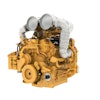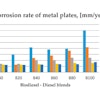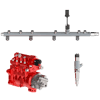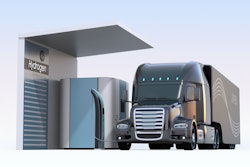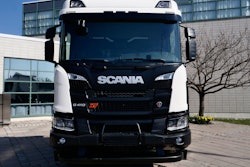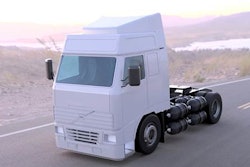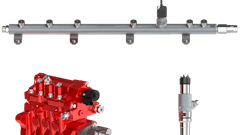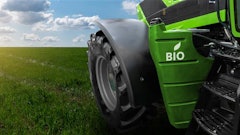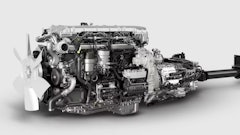Westport Fuel Systems Inc. is announcing a critical technology advancement that allows its natural gas high pressure direct injection (HPDI) system to support the efficiency improvements anticipated from higher peak cylinder pressure (PCP) to be introduced into the next generations of diesel engine platforms. This is a result of the research and development undertaken by Westport Fuel Systems and its technology partners to create higher fuel system pressures to further support the adoption of natural gas HPDI technology in the heavy-duty trucking sector, when these advanced engines are introduced. Westport Fuel Systems has demonstrated its fuel systems at higher pressures of 600+ bar, including the development of a cryogenic pump for high-horsepower applications. Its ability to adapt and integrate those systems to heavy-duty trucking applications positions Westport Fuel Systems with a unique competitive advantage to engine and truck original equipment manufacturers (OEMs).
Today, with the Westport HPDI 2.0 solution, Westport Fuel Systems is the only provider of full commercial natural gas HPDI systems for heavy-duty trucking. The Westport HPDI system using renewable natural gas (RNG) can also match the higher efficiency and performance that is expected out of the next generation diesel engines. This is while realizing up to 100% carbon dioxide (CO2) reduction, thus providing a viable commercial and environmental solution.
“We have been assessing HPDI systems with higher pressures as a key means of keeping pace with higher performance and efficiency demands for many years,” says Thomas Rippon, Chief Technology Officer and Executive Vice President, Westport Fuel Systems. “Our solution goes beyond a single component or an engine-only solution. To achieve the highest levels of performance, a fully integrated vehicle system solution is required, from the cryogenic tank to the tip of the injector nozzles. We have tested our systems to meet OEMs’ rigorous standards, to understand maintenance cycles, and to meet the reliability requirements, while concentrating on the total cost of ownership. These are significant undertakings that have allowed us to successfully support our OEM customers and deliver on their demands. With over 20 years of experience, we have the technical know-how, extensive intellectual property, and engineering capability to support OEMs to further adopt natural gas HPDI technology as they introduce their next generations of diesel engines.”
AVL List GmbH. (AVL), supported by Westport Fuel Systems, presented a new study at the 5th International Engine Congress in Baden-Baden, Germany, that endorses HPDI as one of the most promising commercially available alternative fuel technologies that allow OEMs to meet or exceed future requirements for pollutant and greenhouse gas (GHG) emissions reductions. In heavy-duty long-haul trucking, HPDI provides the highest efficiency and the highest CO2 reduction potential, while still meeting customer performance requirements. Engine OEMs are striving to improve efficiency and meet future CO2 limits, leading to higher PCPs on their diesel engines. The study concluded that the increase in HPDI system pressure enables the HPDI system to continue to take advantage of the efficiency and performance improvements to be found in the next generations of diesel engines, while meeting customers’ and society’s increasing demands to dramatically reduce CO2 emissions.
“The commercial vehicle industry today is finding a way to meet upcoming stringent legislations for GHG and CO2 emissions, without compromising on torque and efficiency, while maintaining a viable commercial proposition for the vehicle in terms of total cost of ownership, range, and downtime,” says Lukas Walter, Executive Vice President of AVL. “Our development results confirm that HPDI, using natural gas, is a very good, commercially available solution today for heavy-duty long-haul truck applications.”
